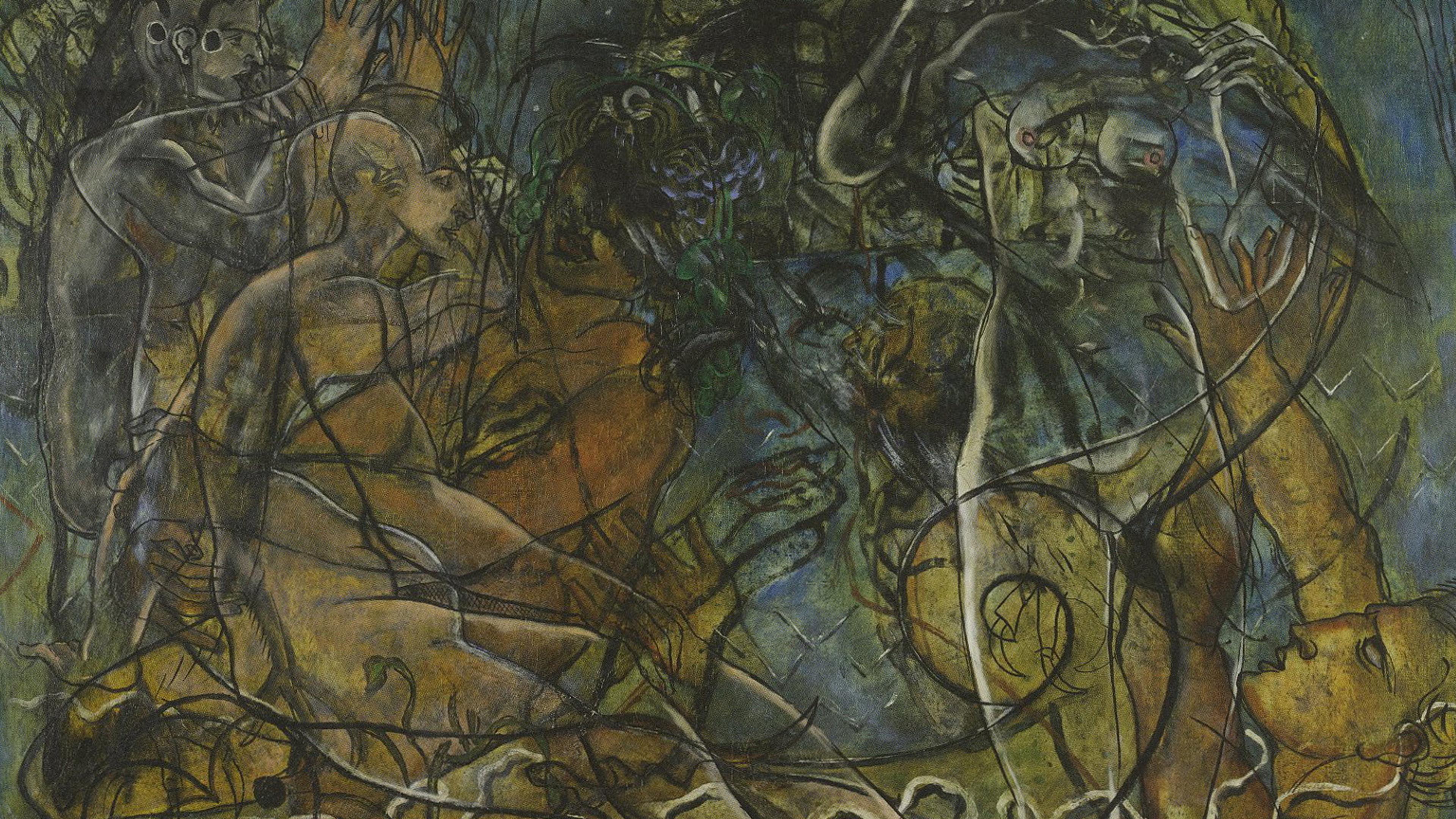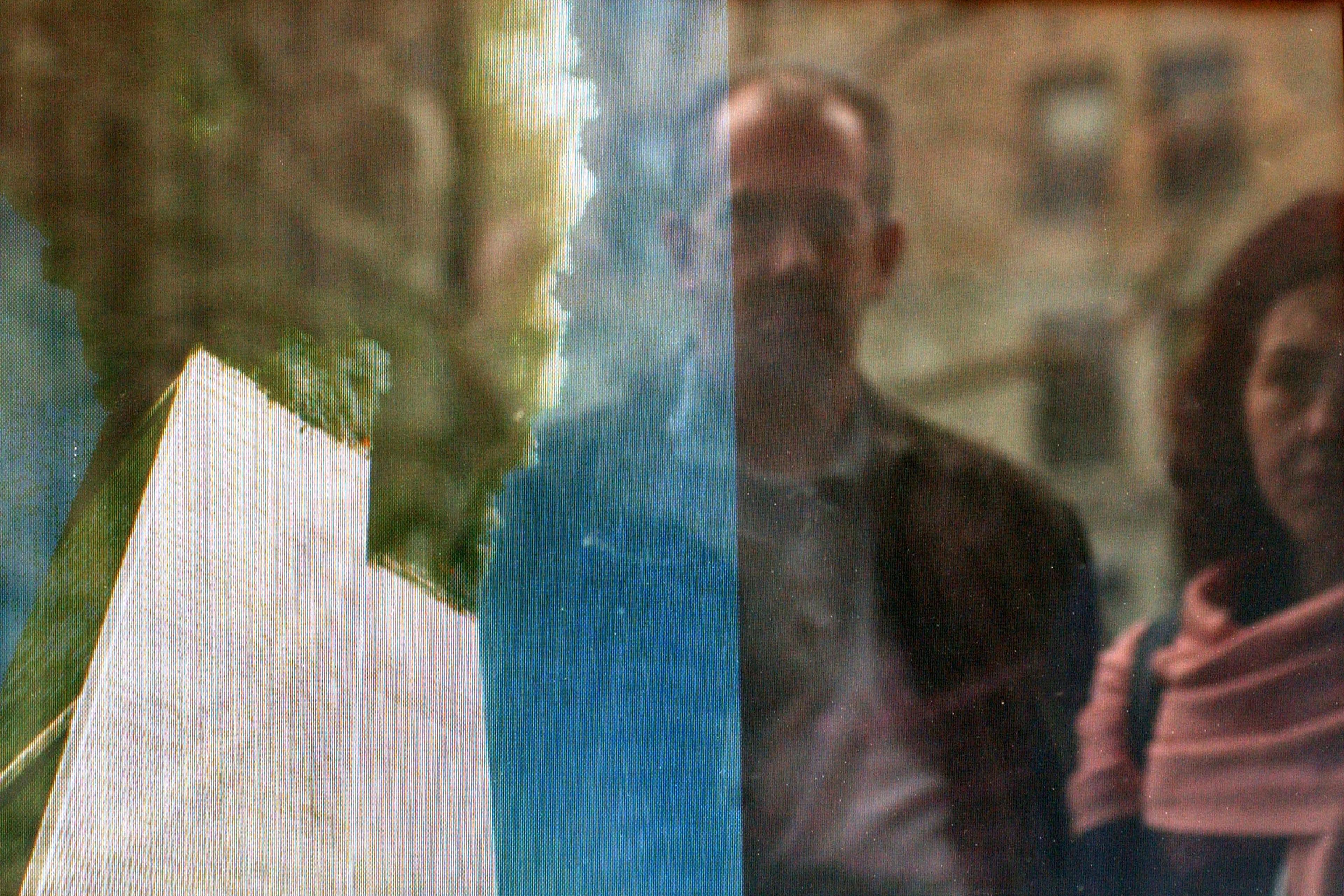The word ‘decomposition’ means, literally, to break down. To become without form – without composition. I decomposed last week. It was the anniversary of a separation, nothing original. In the way of grief, I lost form. I wrote a letter and burned the pages. Each page, each sentence, became bacteria to aid my destruction, until the apartment choked with smoke and my eyes stung and I opened the window and the night rushed in and I breathed, breathed, breathed into a new growing.
To decompose is to become different. It’s a process that mirrors our emotional worlds. We recycle old versions of ourselves, integrating new experiences and then using those memories to transform into something new. Old emotions crumple, rot, transform. They rise and fall; we lose and receive. We become, and we break down, and we become again.
Physical decomposition requires something called detritus, a type of raw material. Raw material is unprocessed – something upon which further materials can be developed. Raw materials can be animal based, plant based or, in this thought experiment, emotionally based.
Let’s think a little further about the phrase ‘raw material’. Generally, people tend to think of raw material as ‘unfinished’ – material that is used to manufacture products that humans can sell to one another. Raw material is unprocessed material, material that humans are hoping to make into something else, something useful for their survival. When we think about the word ‘raw’ in emotional terms, we can identify a similar incompleteness. Emotional rawness implies a temporal proximity to a wound. I feel raw when the cause of pain is recent. I feel raw when the pain is close enough that it has not been processed, not yet made useful for my survival. The anniversary of a separation draws me into closeness with a wound. When drawn close to a wound – when experiencing rawness – the pain is reverted, made unprocessed again. I become raw material.
Detritus is raw material that undergoes a process of decomposition. Specifically, detritus is once-living material that has lost its animation. Dead oak leaves, melted in a browning puddle. The soft neck of an opossum, crushed into a road’s yellow line. A woman on a sofa, reliving a severed friendship. Detritus is characterised by its withoutness – its having, then its returning, of life. Detritus is the house, the shell, the body. Detritus is that which is left behind, waiting to be made into something different.
Grief, too, is absence. It is, as the blogger Jamie Anderson says, love without direction. Grief is a conduit, emptied. A tree sucks the nutrients out of a leaf, and lets it go. A relationship drains out, and lovers part ways. What must we become, in our rawness? We sink into this hollow feeling. Into this missing of someone. To grieve is to have, and then to return. To decompose, we must return what wasn’t ours: the green in our leaves, transferred through miles of roots. The emptied bodies in which we lived. The flesh and wires, empty of brain signals. We collaborate with our surroundings. We give what we can no longer carry, and then we give ourselves too. In return, we become something different. We separate into smaller pieces.
This process of separation is both emotional and chemical. Consider the chemical equation for a decomposition reaction:
AB → A + B
In this equation, ‘AB’ is the reactant. The reactant is about to undergo a chemical change. The letters A and B on the right side of the arrow are the products, which result from this chemical change. Following the decomposition reaction, the reactant becomes two or more products (in this case, A + B). If we are to follow our emotional thought experiment, we might envision an equation sure to offend scientists, as below:
ME → WHO I WAS BEFORE + WHO I AM NOW
Here, we witness a self that breaks apart. ‘Me’ is present at the start of the reaction, and therefore is the reactant. ‘Who I Was Before’ and ‘Who I Am Now’ are the products that have separated from within ‘Me’. But don’t take the ‘before’ and ‘now’ language too seriously – these selves are not bound by time. The product ‘Who I Was Before’ is not stranded in the past. Both of these versions of myself exist simultaneously; they simply detach from one another as they break down. Both products are the result of a self that fractures. They mark a psychological shift, a re-identification, a decomposition.
In an emotional decomposition, we separate from what is no longer alive. We break down and change forms. In the context of a breakup or loss of a family member, the decomposition reaction might shift to something like:
US → ME + YOU
wherein the reactant, ‘us’, divides into two distinct products.
The breakdown of detritus (the material that is being decomposed) is affected by many factors that include temperature, the presence of oxygen, and moisture. Heat speeds up rot; passion increases emotion. Coldness freezes rot in place; numbness locks up internal processing. Decomposition does not take place in a vacuum. It’s a negotiation between environmental factors, including living creatures such as fungi, moulds and bacteria. These creatures are heterotrophic, meaning that they extract their energy from ingesting the detritus. Like organic decomposers, emotional decomposers vary into many subtypes. We can think of emotional decomposers as external forces that help us process and integrate our emotional detritus. They are an integral part of the emotional cycle. Like organic decomposers, they benefit and receive sustenance from this process. Therapists help us with the breakdown process, and in exchange we pay them money that they use to buy food. Friends talk us through our feelings night after night, and in exchange we offer companionship that is essential for living. In this network of mutual care and connection, we make something complex simple.
Decomposition is a process of release. As hungry decomposers break the organic matter apart, the detritus releases carbon dioxide, methane and plant nutrients. With the help of heat, microorganisms and oxygen, the detritus lets go of what has been stored inside. We can intuit the emotional parallel: heat as the full and physical sensation of emotion, microorganisms as a loving support system, and oxygen as, simply, breath. When you feel into your body, step into your social life, and breathe, it initiates the process of letting go.
Where do these feelings go then, when you let go of them? Where does the love go, when it can’t live in your body any more? And what is left behind?
When a body decomposes, the materials left behind become part of something called humus. Humus is the organic component of soil, the component that comes specifically from decayed matter. It’s dark, crumbly and rich with nutrients. Earthworms go crazy for the stuff. Water filters through it easily. When humus is present in soil, that soil can more easily support life. When we break down emotionally, and when we let go of locked-up feelings, this makes space for newness. We become emotional humus, a collection of fragments, materials that are both released and left behind, taken and given, changed back into more potential.
This brings us to the final stage, and the opening stage. The lines of the circle kiss together. Now, here we are, after the loss of animation. After the systematic separation. After the heat and breath, the absence and exchange, after being eaten apart and disassembled, after we have split open and emptied, after we have given back everything that remains: we return to the beginning. We make way for nervous, hungry roots. We meet someone’s gaze from across the room, embark on a road trip, move into a different apartment. We open to newness, and we begin again.








